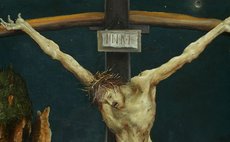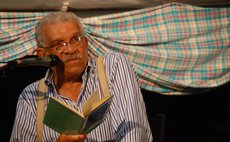Challenge and conformity
The scholastic year is approaching an end. For some, it will be a time of joy; for others, it might be a time of sorrow. Those who are rewarded for their achievement will be happy. Those who have fallen short of expectation will be unhappy. Their parents and guardians will share in their joys or sorrows.
Graduation exercises will be held. There will most likely be nothing new. Perhaps there will be nothing more than the rehashing of time-old clichés about the merits of hard work. Most students will not be listening. They will regard it as part of the merry-go-round that must not be disturbed.
Yet, a graduation ceremony could be a most important event in a student's life. It could be a memorable milestone on the path of existence—even a turning point in an otherwise banal academic experience. It could mark a beginning rather than an end.
Some years ago, Muhammed Ali, one of the greatest heavyweight champions in the history of Boxing, was invited to deliver the feature address at the Commencement Exercises (Graduation) of the prestigious Harvard University of the United States of America. Now, many people have known Muhammed Ali more for his clowning before a pugilistic contest rather than for his boxing skill. Muhammed Ali told his audience: "People do not know me. They think that what they see and hear on television is me. That is not the real Muhammed Ali. People want to see and hear foolishness!"
Most people are not really serious about life. Indeed, they are hardly serious about anything at all—not justice, not politics, not education, not truth, not religion. Oh, the games people play! Education should lead us to take these things seriously.
The end of the career of students at secondary schools and at the Dominica State College implies the attainment of a certain level of maturity. During the past years, they have been treated to much about man and his world. Certainly, much effort has been expended both by students and by teachers. Indeed, this must be recognized and applauded. An outstanding investment is being made towards the education of youth, and that is of tremendous value for personal enhancement and national development.
However, questions should be asked. Among them: Education to what end? The famous Irish poet, William Yeats, teaches us that "Education is not the filling of a pail. It is the lighting of a fire." Real education should fire the imagination. It should produce thinkers, people who dare to express themselves independently.
After my secondary education in 1952 at the Dominica Grammar School, I emigrated to the U.S.A., with the hope of pursuing medical studies. On my arrival, I came to the conclusion that I was not ready for college. I went to Harlem High School in New York City where I attended night classes on the History of the United States of America, World History and Economics.
At the end of the first semester, we had an examination. When I presented my examination papers to the history lecturer, his immediate reaction was: "Man, you give me a lot of work to do!" However, a few days after he had read through my papers, he complimented me on my performance. He said to me, "Man, you have ideas!"
During a World History class, either at high school or college, a question was asked by the lecturer. I volunteered a response. I made two points. Immediately, he shot back: "Where did you get that?" I replied, "The first point came from the textbook. The second point was my personal conclusion." And I was right.
We live in a world which emphasizes conformity rather than challenge. A good student is often regarded as one who merely repeats mechanically what he is taught. Rather, a good student should be one who recognizes his need to learn from others, but is also aware that if he is truly mature he must subject what he learns to his own thinking.
Life is a challenge. The great men and women of history are not people who have merely repeated what was said before or did just what was done before. The men and women who have directed the course of history dared to challenge prevailing ideas and attitudes. They had the courage to chart their own course. History has vindicated them. They have been proven right. This is of the essence of education.




